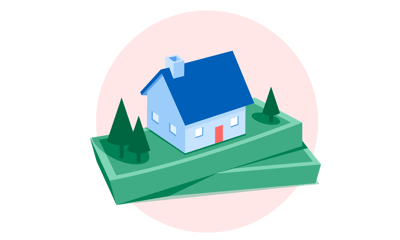CHIP Reverse Mortgage Review



CHIP Reverse Mortgage: Our quick take
The CHIP Reverse Mortgage is HomeEquity Bank's flagship product, and the only reverse mortgage available in every Canadian province.
Who is CHIP Reverse Mortgage best for?
A CHIP Reverse Mortgage may be a good choice for homeowners over the age of 55 who would like to turn their home equity into cash without selling or refinancing.

Who's eligible for a CHIP Reverse Mortgage?
To get a CHIP reverse mortgage, you’ll need to meet the following requirements:
You must be a Canadian homeowner.
The home must be your primary residence.
All homeowners on the title must be at least 55 years old.
The value of your home must be at least $250,000.
HomeEquity Bank also considers the following criteria:
Type of home (detached house, condo, etc).
Location.
The amount of equity you have.
The condition of your home.
» MORE: Read our comprehensive guide to reverse mortgages
What types of mortgages does HomeEquity Bank offer?
As a direct lender, HomeEquity Bank offers a variety of reverse mortgage products, but the CHIP Reverse Mortgage is the most popular option. Originally called the Canadian Home Income Plan, this loan was rebranded as the CHIP Reverse Mortgage as HomeEquity Bank added more reverse mortgage products.
Best mortgage rates in Canada
Compare offers from Canada’s top mortgage lenders and brokers.
Review of CHIP Reverse Mortgage features
NerdWallet Canada's editorial team sifted through dozens of lender websites looking for features borrowers are interested in. Then, we summarized how each lender compares to its competitors using the labels "limited," "standard" or "excellent."
To see the details that led to each summary, expand the box below each entry.
Advertised rates
STANDARD
HomeEquity Bank is upfront about the rates related to its CHIP products. It publishes rates and fees clearly online, and its advertised rates are on par with options you may find elsewhere.
One of the primary drawbacks of all reverse mortgages is that they come with high interest rates relative to traditional mortgages, and the rate will be in effect for as long as a loan is active.
Areas served
EXCELLENT
CHIP Reverse Mortgages are available everywhere in Canada except the Northwest Territories, the Yukon and Nunavut.
What it’s like to apply for a CHIP Reverse Mortgage
You can’t apply for a reverse mortgage with HomeEquity Bank online. To do that, you’ll have to call the bank (1-866-758-2447) to speak with a mortgage specialist. You can, however, get a free online estimate of how large a reverse mortgage you might qualify for.
How to get started on CHIP Mortgage's website

When you reach the HomeEquity Bank website, hover over the “Products” tab and click “Our Products.”

On the following page, click either “Reverse Mortgage” or “CHIP Reverse Mortgage.”
At the top of the next page, click “Get My Estimate.

Enter a few details about your home (address, estimated value) and yourself (age, contact information) and you’re all done.
About NerdWallet mortgage reviews
When the NerdWallet Canada editorial team reviews a mortgage lender, we look for the options it offers customers, transparency in advertising, ease of application and flexibility it offers mortgage-holders.
Of course, a mortgage is a highly personalized product. The offer you receive depends on the details of your financial situation. A lender may have a less-than-transparent website but offer you a great rate.
Use this review to familiarize yourself with this mortgage lender. To get the best mortgage rate, work with a mortgage broker or negotiate directly with multiple lenders.
DIVE EVEN DEEPER

 Clay Jarvis
Clay Jarvis Clay Jarvis
Clay Jarvis
 Sandra MacGregor
Sandra MacGregor